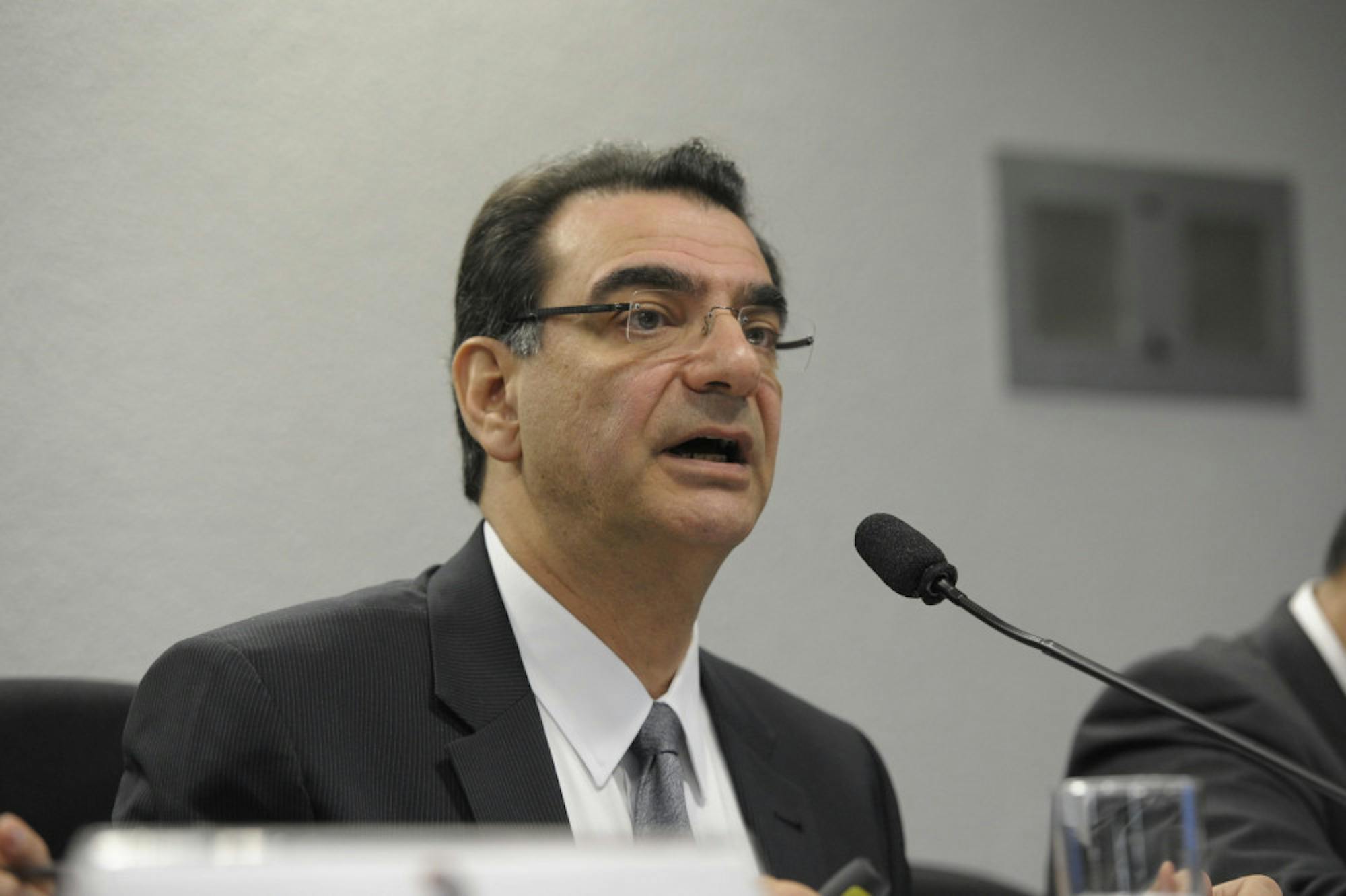Tadeu Carneiro, chairman and CEO of Boston Metal, gave a lecture in the Hoch Cunningham Environmental Lecture Series on March 16 about a new electrochemical process for decarbonization that his company recently pioneered. The process, known as molten oxide electrolysis, has the potential to make an industry which produces 10% of global carbon emissions greener, Carneiro said.
Early on in the lecture, Carneiro reasoned that, as a widely used material, steel is a major target for decarbonization.
“Steel is everywhere, absolutely everywhere,” Carneiro said. “[Globally, we] manufacture 2 billion tons of steel every year. … There is no economy, no infrastructure, nothing without steel.”
Carneiro cited examples of modern infrastructure of which steel is a major component, ranging from gas pipelines to the beams at the base of the Freedom Tower.
“[That’s] why steel is the most important engineering material and will continue to be,” Carneiro said.
On Feb. 7, researchers had their historical first successful tapping of 100% green steel from one of their pilot cells. The process consists of converting iron ore grades into a high-purity metal in an electrolytic cell — i.e., a furnace — powered by renewable electricity, so as to produce no carbon emissions. This process vastly differs from the most popular method of steel production, which combines the coal-fired blast furnace and basic oxygen furnace and produces a substantial amount of carbon emissions.
Many of the major steel companies have started pledging to become net-zero by 2050, and Carneiro explained that the only way to ensure that these companies meet their goal is by phasing out current high carbon methods of steel production with an electricity based approach.
Carneiro noted that, as a result, Boston Metal has faced minimal resistance from the steel industry.
“[Steel companies] are all looking for a solution, … so there is no pushback in the steel industry,” Carneiro said.
Carneiro also addressed the limitations of the hydrogen direct reduction process, a competing steel manufacturing process that emits minimal carbon dioxide but has failed to take off although it has been available for over 50 years.
“There is a lot of noise and marketing about hydrogen being the solution to decarbonize steel, [but] there is a natural limitation for hydrogen,” Carneiro said. “[We] don’t have [an] abundance of green hydrogen, … [and] if you have too many impurities in your iron ore, [the process] doesn’t work, so it has to be a premium iron ore.”
He concluded that once his company’s molten oxide electrolysis platform is commercialized — which it is on track to be by 2026 — the direct reduction process will not be able to compete.
Boston Metal recently received $120 million in funding from investors including Microsoft’s Climate Innovation Fund and steel making giant ArcelorMittal, which was its lead investor. Carneiro called ArcelorMittal’s investment “a huge endorsement.”
“[They are the] largest international steel making company, [and] one of the most … sophisticated in the world,” he added. “That was the largest investment in a new technology that they made.”
Additionally, Boston Steel was named 2023 North American Company of the Year by the Cleantech group for their technology development.
“It was the first time that the Cleantech organization gave the award to someone in the heavy industry, … [and] more than 15,000 companies are analyzed every year,” he said.
Carneiro also commented on the major growth in the company’s workforce in the past seven years, rising from six employees in 2016 to more than 100 today.
“That’s the most rewarding thing in working,” Carneiro said. “It’s amazing talent that we have in the group at Boston Metal.”
Asked about policies that he thought might ensure the wide adoption of Boston Metal’s technology, Carneiro answered that richer economies especially must reduce their carbon emissions.
“The countries that are perceived to be the ones polluting a lot and having lots of exports with high steel content will have to clean up because [consumers are] going to be looking at the carbon footprint of the products,” he said. “The first thing that will move the needle will be consumers.”
At the end of the lecture, Carneiro expressed optimism about the potential success of green industries.
“I believe that this decarbonizing, and everything that is associated with the end of the carbon age, has a very bright future,” he said. “We will have to end the carbon age. It has to end. So whatever you do along those lines, it will be very successful.”






